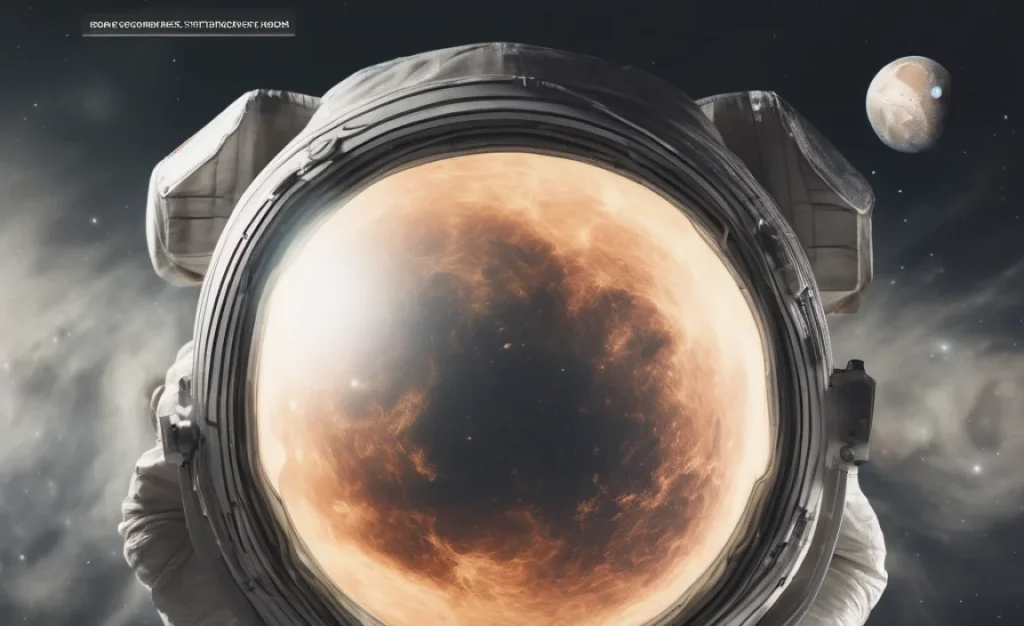Space is vast and mysterious. It holds many secrets and surprises. Have you ever thought about what happens out there? Space exploration is exciting, but it can also be a bit scary. Imagine floating in the dark, endless space with only a spaceship for safety. How do astronauts deal with the unknown? Let’s dive into some scary facts about space exploration.
Key Takeaways
- Space is vast and mostly unexplored.
- Radiation can harm astronauts in space.
- Space debris poses threats to spacecraft.
- Communication delays can risk astronaut safety.
- Scary facts about space exploration can surprise us.
Vacuum of Space: A Silent Danger
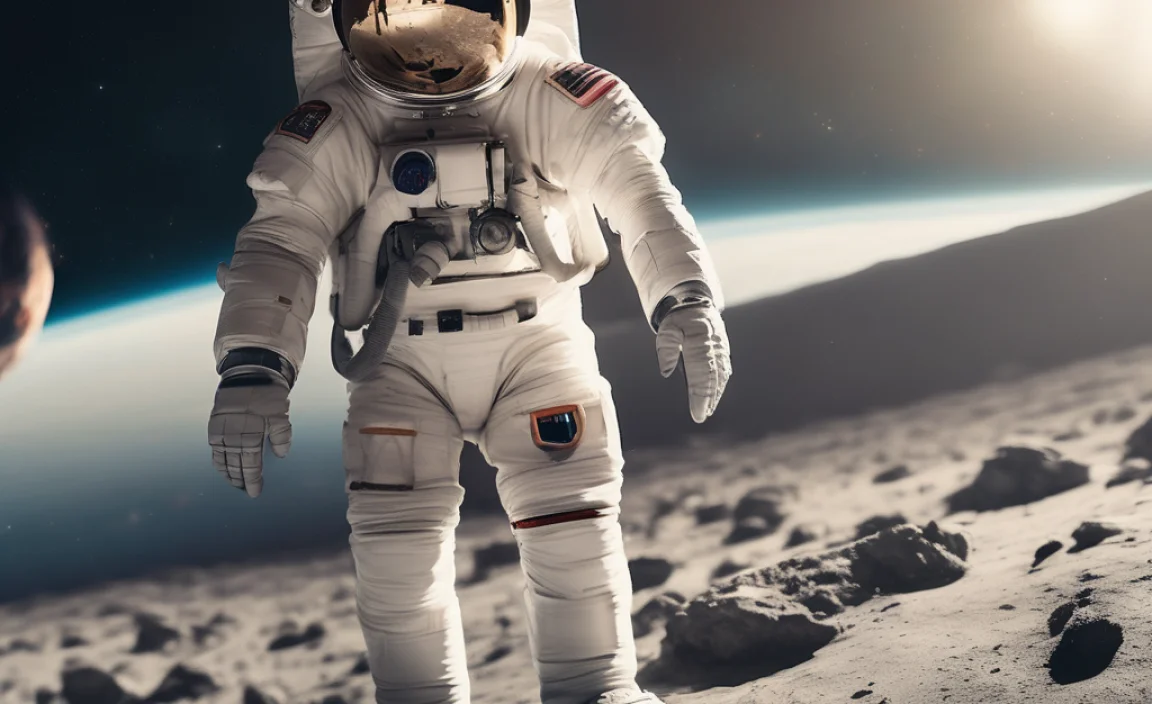
Space is a huge, empty place called a vacuum. In a vacuum, there is no air to breathe. This means no oxygen for astronauts. If their suits break, they are in great danger. The vacuum can also make blood boil and skin expand. Scary, right? That’s why spacesuits are super important. They keep astronauts safe from the vacuum of space.
- Spacesuits provide oxygen.
- They protect from extreme temperatures.
- Spacesuits shield from space dust.
- They are airtight to prevent leaks.
- Spacesuits have communication systems.
- They monitor the astronaut’s health.
- Spacesuits regulate body temperature.
Astronauts rely on their training and gear to stay safe. They must check their suits before each mission. If a problem occurs, they must fix it quickly. These skills help them survive the harsh vacuum of space.
Fun Fact or Stats: Spacesuits can weigh up to 280 pounds on Earth!
What Is a Vacuum?
A vacuum is a space without air. Why is it important? Well, humans need air to live. In space, there’s no air to breathe. So, astronauts must bring their own. Think of a vacuum as a giant, airless room. Sounds spooky, right? Imagine being there and not being able to breathe. That’s why astronauts wear special suits. These suits provide air and keep them safe.
How Does the Vacuum Affect Health?
In a vacuum, strange things happen to our bodies. Have you heard of blood boiling? In space, without pressure, blood can boil. That sounds scary, doesn’t it? It can make you very sick or worse. Luckily, spacesuits prevent this by creating pressure. Astronauts must wear them every time they leave their spaceship. Safety is always first in space.
Why Is a Spacesuit Important?
Why do astronauts wear spacesuits? Spacesuits are like personal safety bubbles. They protect from the vacuum and space dust. Space dust, though tiny, moves fast and can hurt. The suits also help control temperature. In space, it gets very hot or very cold quickly. So, suits keep astronauts warm or cool. They make sure astronauts can breathe and talk back to Earth.
Radiation: The Invisible Threat
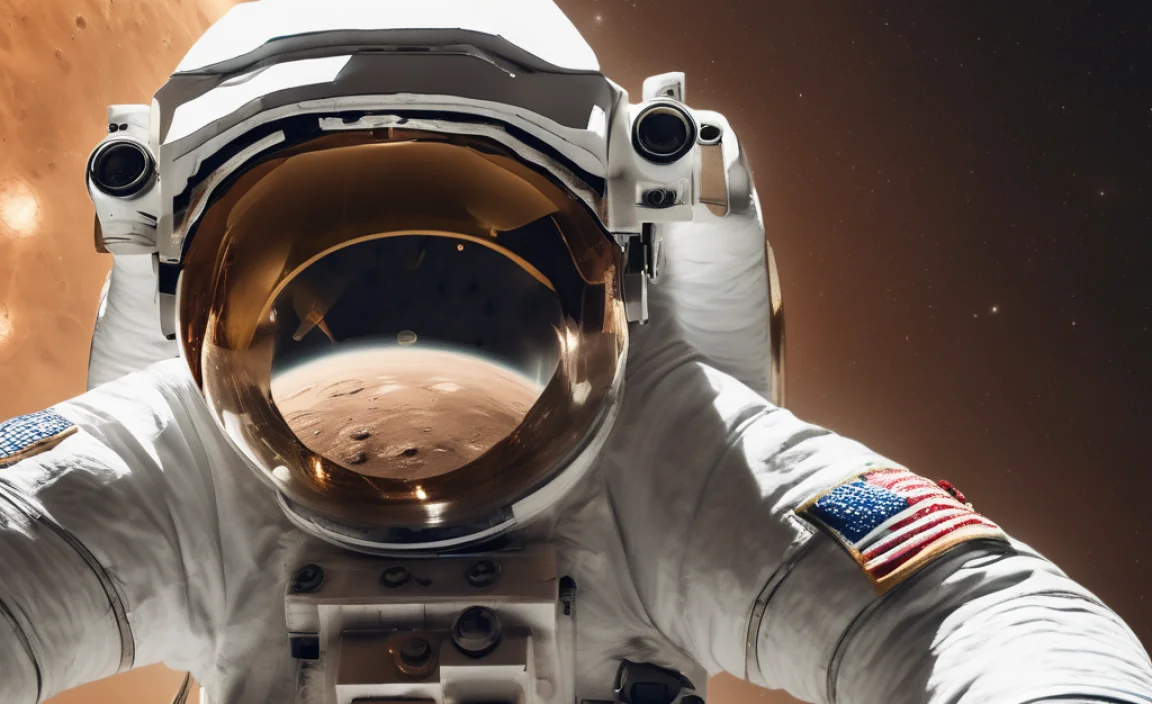
Space is full of radiation, a type of energy that can be dangerous. On Earth, our atmosphere protects us from it. But in space, astronauts don’t have this protection. Radiation can damage their cells and make them sick. It’s an invisible danger they must face. Spacecraft and suits help shield them, but the risk is never zero.
- Radiation comes from the sun.
- It also comes from cosmic rays.
- Radiation can harm DNA in cells.
- It increases cancer risk for astronauts.
- Spacecraft have protective layers.
- Astronauts monitor radiation levels.
- Short missions reduce exposure risks.
Astronauts need to understand radiation risks. They plan missions carefully to minimize exposure. Scientists work on improving protection methods. They hope to make space safer for everyone exploring it.
Fun Fact or Stats: A year in space can expose you to 10 times more radiation than on Earth!
What is Radiation in Space?
Did you know space is full of radiation? Radiation is energy that travels through space. The sun and cosmic rays send out this energy. It can be harmful to humans. On Earth, we’re mostly safe thanks to our atmosphere. But in space, astronauts face this invisible threat. That’s why they wear special suits and stay inside spacecraft.
How Do Astronauts Stay Safe?
Astronauts use several tools to stay safe from radiation. Spacecraft have layers to block radiation. Suits offer extra protection. Astronauts also monitor radiation levels. They can find safer spots if needed. Shorter missions help reduce exposure. Scientists keep looking for better shields. Safety is always a top priority in space exploration.
Can Radiation Affect Health?
Yes, radiation can affect health. It can damage cells and DNA. This might cause cancer. But astronauts are prepared. They follow strict guidelines to limit exposure. They also check their health before and after missions. Doctors study these effects to keep astronauts safe. The goal is to explore space without getting sick.
Space Debris: A Growing Hazard
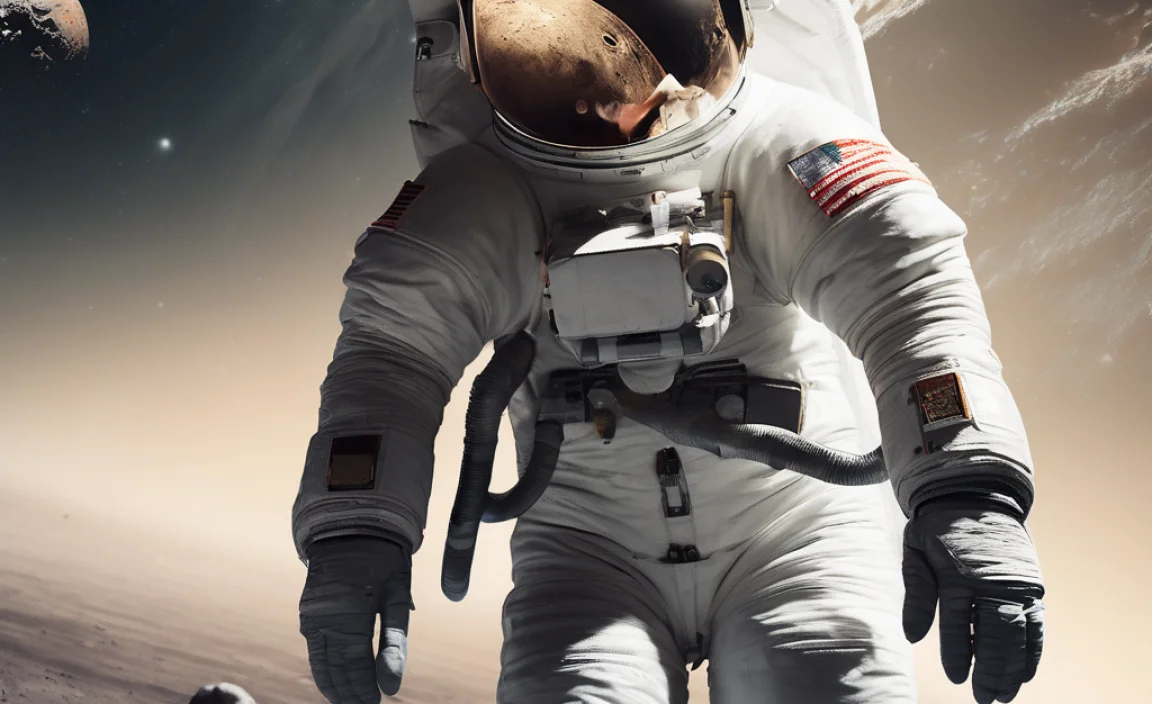
Space debris is a serious problem. It includes old satellites, broken rocket parts, and tiny bits of metal. These objects zip around Earth at high speeds. They can crash into spacecraft and cause damage. Imagine flying in space and getting hit by debris. It’s a real danger for astronauts. They must constantly watch out for space junk during missions.
- Space debris travels fast.
- It can damage spacecraft.
- Debris comes from old satellites.
- It includes paint flecks and metal.
- Space agencies track debris paths.
- Avoidance maneuvers prevent collisions.
- Efforts exist to clean up debris.
Space agencies use satellites and radar to track debris. They plan routes to avoid collisions. Sometimes, they move a spaceship to dodge debris. Cleaning up space is a big task. New ideas and technologies aim to reduce space junk.
Fun Fact or Stats: Over 27,000 pieces of debris are tracked orbiting Earth!
Why Is Space Debris Dangerous?
Space debris sounds small, but it can cause big problems. Imagine a tiny piece moving faster than a speeding bullet. If it hits a spacecraft, it can cause serious damage. That’s why space agencies track debris. They work hard to avoid it. It’s a tricky issue that grows every year. Cleaning up space is important for safe exploration.
How Do Astronauts Avoid Debris?
Astronauts have a plan to stay safe from debris. They use satellites to track debris paths. If something gets too close, they can move their spacecraft. This is called an avoidance maneuver. It’s like dodging a ball in a game. They practice these moves to keep everyone safe. Safety checks happen often during missions.
What Are We Doing About It?
Space agencies know debris is a big problem. They try to track and avoid it. But they also look for ways to clean it up. New technologies aim to capture and remove debris. It’s like cleaning up a messy room. The goal is to make space safer for future missions. Everyone working in space helps with this effort.
Communication Delays: A Time Challenge
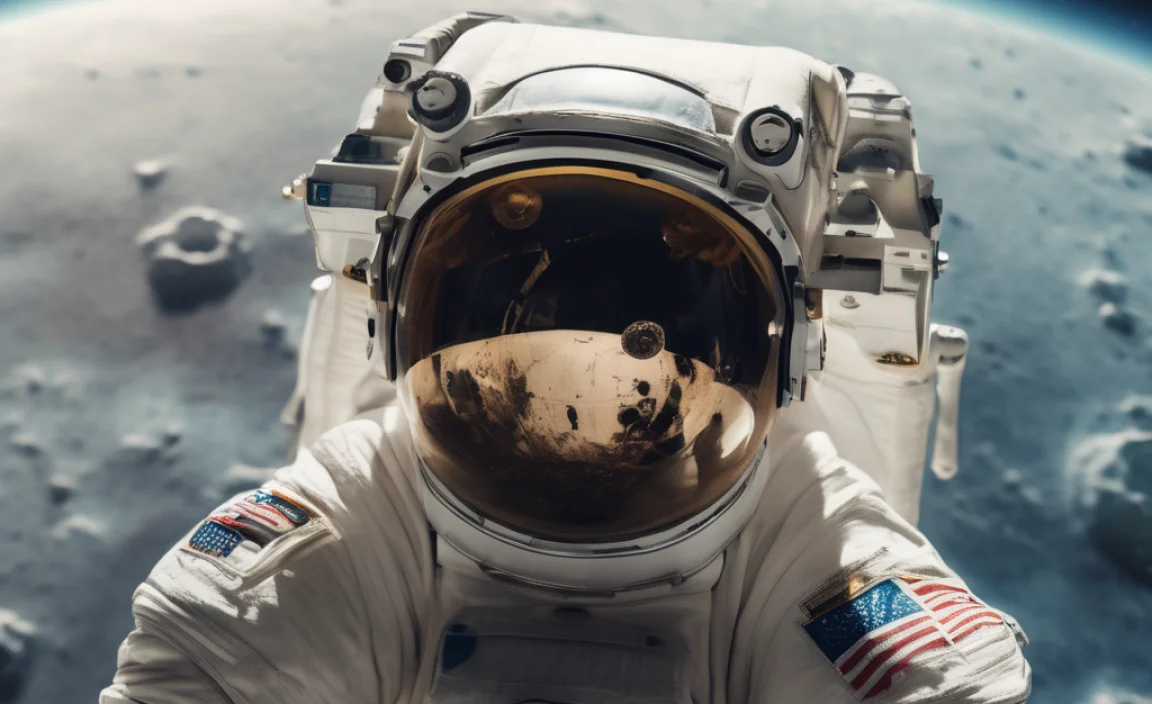
Space is not just dark and cold; it’s also far away. When astronauts talk to Earth, it takes time for signals to travel. These are called communication delays. They can cause problems during emergencies. Imagine needing help and having to wait for answers. That’s why astronauts practice solving issues on their own. They must be ready for anything.
- Signals take time to travel.
- Delays range from seconds to minutes.
- Delays depend on distance.
- Longer missions face more delays.
- Astronauts train for quick decisions.
- Communication systems are vital.
- Backup plans ensure safety.
| Mission | Distance (miles) | Signal Delay (seconds) |
|---|---|---|
| Moon | 238,855 | 1.3 |
| Mars | 140,000,000 | 13 to 24 |
| Jupiter | 484,000,000 | 35 to 52 |
| Pluto | 4,670,000,000 | 246 to 252 |
Astronauts need to make fast decisions in space. They can’t always wait for Earth to respond. Training helps them handle problems alone. Back on Earth, teams work hard to improve communication. They aim to make it faster and more reliable.
Fun Fact or Stats: A signal from Mars can take up to 24 minutes to reach Earth!
Why Do Signals Delay?
Signals delay because space is vast. Even the fastest signals take time to travel. Think of it like sending a letter instead of a text. The farther you are, the longer it takes. That’s why astronauts practice making decisions. They can’t always wait for replies from Earth. Their training prepares them for these delays.
How Do Astronauts Manage Delays?
Astronauts use special skills to handle delays. They train to solve problems quickly. They also use backup plans for emergencies. Communication systems help them stay in touch. These tools are crucial for their safety. Mission teams on Earth support them. But astronauts must be ready to act alone if needed.
Can We Reduce Delays?
Scientists work hard to reduce delays. They study new technologies and methods. Faster systems could make a big difference. But for now, delays are part of space travel. Astronauts and mission teams keep improving. They aim to make communication as quick as possible. Every step forward makes space exploration safer.
Isolation: The Mental Challenge
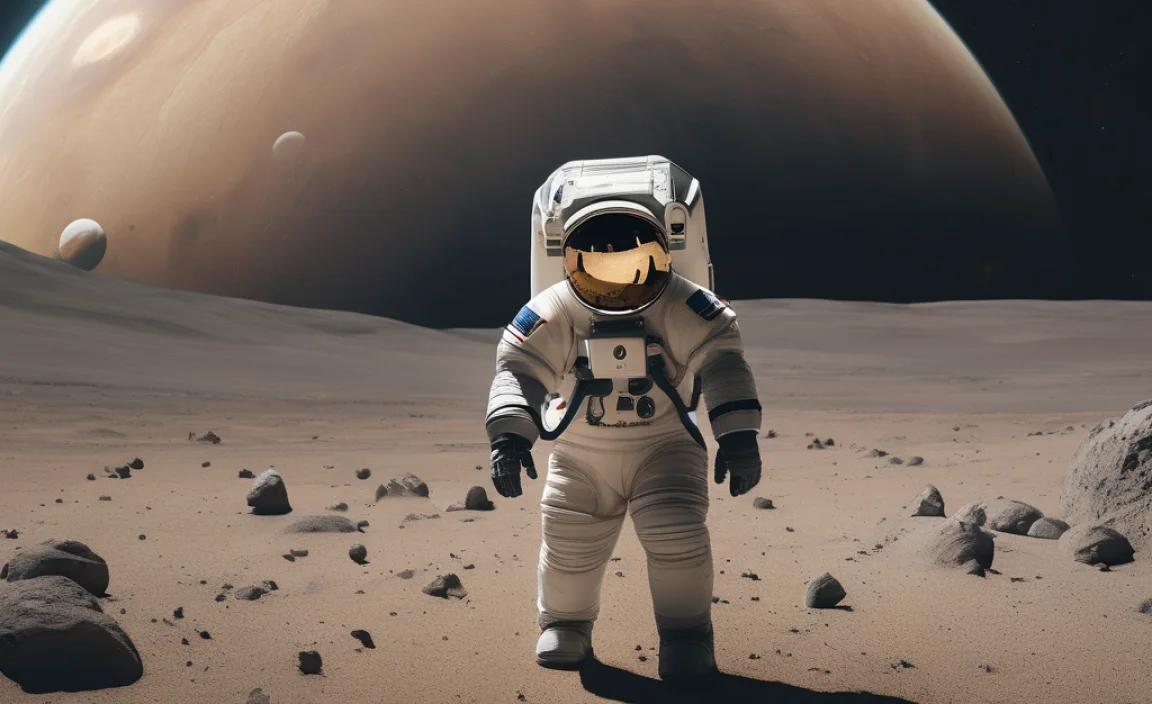
Space missions can be lonely. Astronauts spend long periods far from home. Isolation can be tough on their mental health. They miss friends and family. Imagine being away for months or years. It takes a strong mind to cope. Astronauts use special training to handle isolation. They stay busy with work and hobbies to keep their spirits up.
- Isolation affects mental health.
- Long missions increase loneliness.
- Communication helps combat isolation.
- Teamwork boosts morale.
- Hobbies provide stress relief.
- Support from Earth is crucial.
- Training prepares astronauts for loneliness.
Astronauts keep in touch with loved ones through video calls. They work together to support each other. Staying busy helps them manage stress. Mission control on Earth provides constant support. Together, they ensure astronauts stay happy and healthy.
Fun Fact or Stats: The longest space mission lasted 437 days!
How Does Isolation Affect Astronauts?
Isolation can be hard on astronauts. Long missions mean time away from home. They miss family and friends. This can make them feel lonely. But they have ways to cope. They stay busy with work and exercises. They also keep in touch with loved ones. Astronauts have strong minds and spirits to handle this challenge.
What Do Astronauts Do to Stay Happy?
Staying happy in space is important. Astronauts keep busy with tasks and hobbies. They exercise to stay fit and reduce stress. Teamwork helps boost morale. They also connect with loved ones. Communication is key. These activities keep them happy and focused. A happy astronaut is a successful astronaut.
Why Is Support from Earth Important?
Support from Earth is crucial for astronauts. Mission control helps them with challenges. They provide advice and resources. Astronauts also contact family and friends. This support keeps them motivated. Knowing they are not alone makes a big difference. Teamwork between Earth and space is essential for success.
Conclusion
Space exploration is thrilling but comes with challenges. The vacuum, radiation, and debris are scary facts about space exploration. Astronauts face these dangers bravely. They train hard and use special equipment to stay safe. As we explore further, we learn more. These lessons help us prepare for the future. Space is vast and mysterious, but we continue to explore its wonders.
FAQs
Question: What are some scary facts about space exploration?
Answer: Space exploration involves facing radiation, vacuum, and space debris. Communication delays and isolation also pose challenges. These factors make space missions risky but exciting.
Question: How do astronauts stay safe from radiation?
Answer: Astronauts use spacecraft and spacesuits to shield against radiation. They monitor levels and follow strict guidelines to limit exposure. Shorter missions also reduce risks. Research continues to improve protection methods.
Question: Why is space debris dangerous?
Answer: Space debris travels fast and can damage spacecraft. It includes old satellites and tiny metal bits. Collisions with debris pose threats to missions. Agencies track debris to avoid accidents. Cleaning space is a priority.
Question: How do astronauts deal with isolation in space?
Answer: Astronauts manage isolation through communication, teamwork, and hobbies. They stay busy with tasks and exercises. Contact with loved ones helps. Mission control provides support, ensuring their mental well-being.
Question: What causes communication delays in space?
Answer: Communication delays occur because space is vast. Signals take time to travel. The farther the mission, the longer the delay. Astronauts train to make quick decisions. Scientists work to improve communication systems.
Question: Can scary facts about space exploration stop missions?
Answer: No, scary facts inspire better planning and safety measures. They teach us about space’s risks. With preparation, astronauts explore confidently. New technologies help overcome challenges, ensuring mission success.


